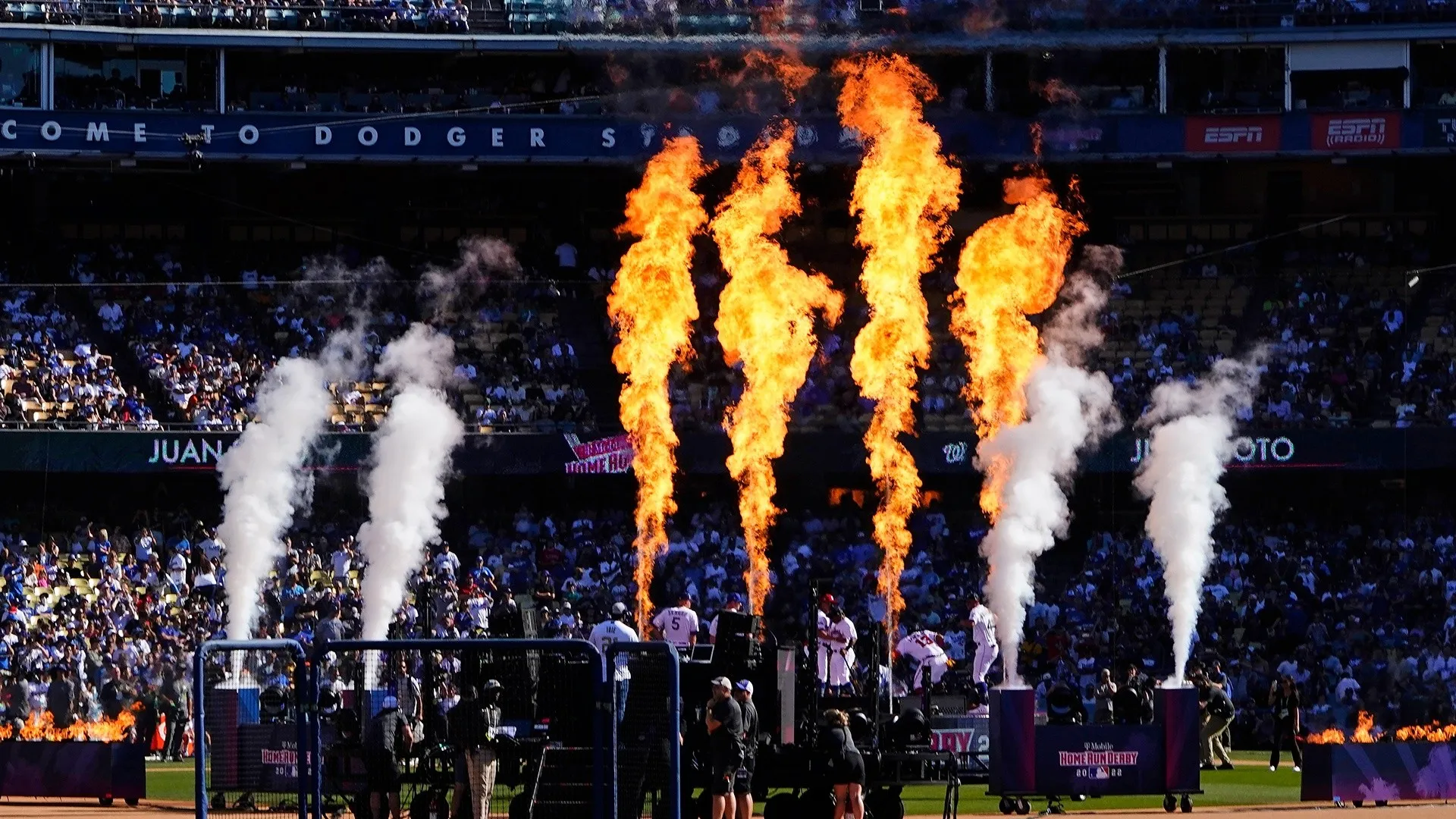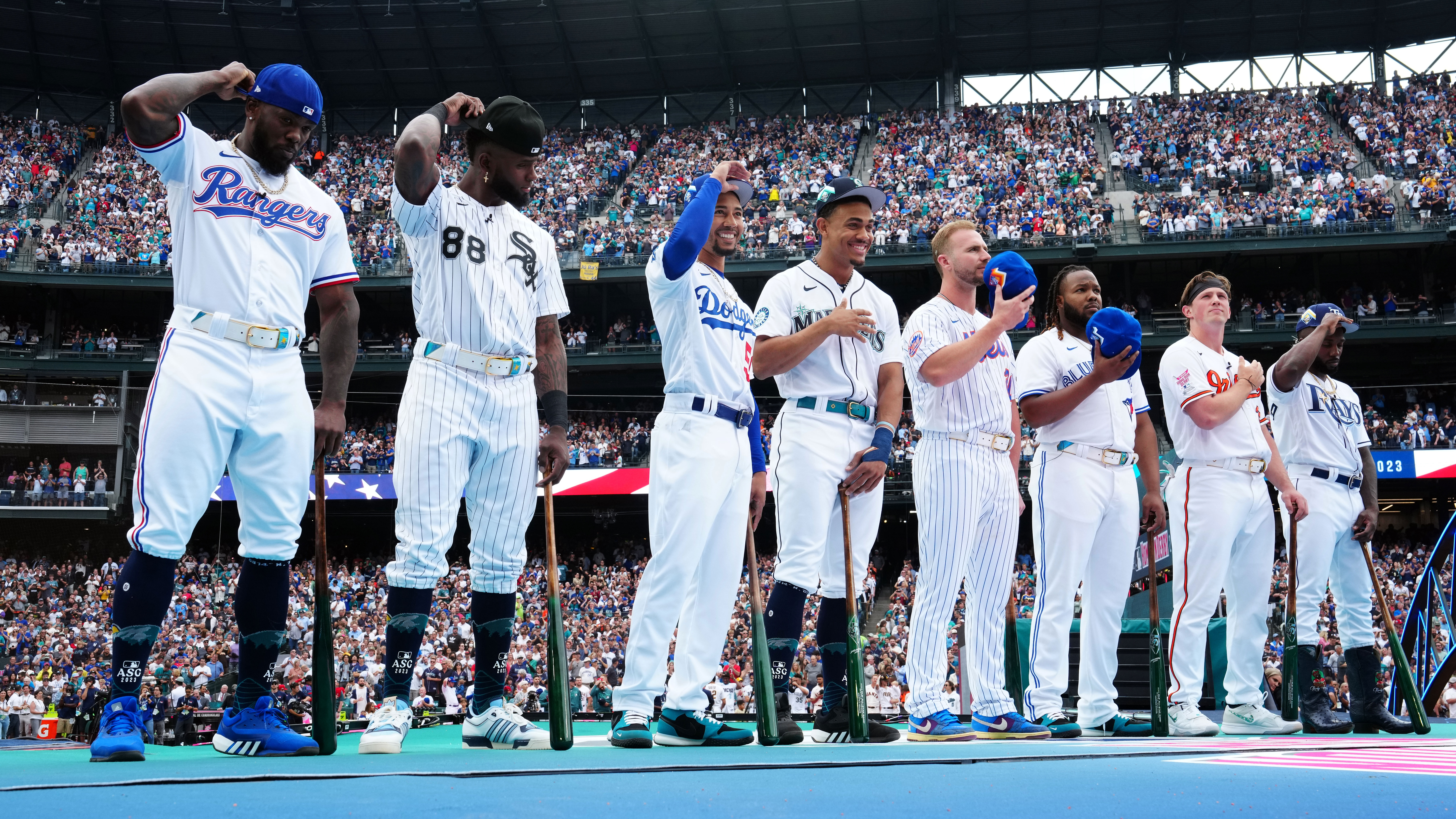Ian Happ had filled out and grown a short-cropped beard in the decade since he’d last seen Inverness Club superintendent John Zimmers.
Back then, Zimmers held the same position at Oakmont Country Club. He and Ian Happ’s father Keith, a United States Golf Association agronomist, were working together on the 2010 Women’s Open. Keith brought his wife and kids, including 15-year-old Ian, out to Oakmont for the championship.
Now, 11 years later, Ian Happ was in town with the Cubs. He invited teammates Jake Arrieta and Zach Davies along to Toledo for a day of golf and Zimmer’s stories of the three championships he and Happ’s late father put on together.
Stay in the game with the latest updates on your beloved Chicago sports teams! Sign up here for our All Access Daily newsletter.
“It's really cool to be able to share that with friends and teammates now,” Happ said, “and just the impact that he had on so many lives.”
Keith Happ died in 2015, after an 18-month battle with brain cancer. Even just hearing the way Ian talks about his father, Keith’s influence is obvious. He passed down his love for golf, for one. He also inspired Ian’s commitment to mental health awareness.
In 2018, the Happs launched the Happ Family Charitable Fund to support mental health awareness and wellness through organizations like Bring Change to Mind and First Tee Greater Chicago.
“The one thing that we didn't want when he passed was for him to be remembered for the disease that took his life,” Ian Happ said. “We didn't want him to be remembered just for brain cancer. We wanted him to be remembered for the impact that he had on so many people and so many individuals.”
In Ian’s demeanor as they caught up last month, Zimmers saw plenty of his old friend Keith, who he’d known since the late ‘90s. They worked together on the 2003 U.S. Amateur, 2007 U.S. Open and, of course, the 2010 Women’s Open.
“He's very calm,” Zimmers said of Ian. “Doesn't really overreact – whether he's just having a conversation, or I've watched him playing baseball – and you can tell he controls his emotions very well. And his father did the same thing.”
When the Cubs’ schedule allows, Happ will carve out time to visit golf courses on the road, reaching out to superintendents who his dad worked with. As an agronomist, Keith Happ assisted and advised courses on their grass, especially in the Midwest region.
The golf course superintendents will find Ian when he’s on the putting green to chat. But for Happ, the times assistant superintendents seek him out serve as an even greater testament to the legacy his dad made.
“Those things to me are super special,” Ian Happ said, “because without a true impact and a really generous heart, it's not worth it for that person to come up and say hello.”
‘We needed to share with everyone’
In sports, self-assurance and positive self-talk weren’t necessarily Ian and his older brother Chris’ first instincts as teenagers.
“While we were 15-year-olds berating ourselves for not getting four hits in a game, he was lifting us up and telling us all the positive things,” Ian said of his dad.
Keith’s message remined consistent years later when he was fighting cancer at the same time as Ian was hitting career milestones.
“One of the most amazing, and just ridiculous things,” Ian said, “was through his 18-month battle with brain cancer, terminal from the beginning, the ability that he had to focus on the present moment, to be positive and to really push through that in such a way that was never morbid, it was never about him.”
In that year and a half, Ian hit .329 in the Cape Cod League, had surgery on a sports hernia, played his last season at Cincinnati, was drafted by the Cubs, and started his professional career. Even as Keith’s health deteriorated, he made sure those accomplishments didn’t feel bittersweet for Ian.
Still, Ian’s time in short-season Single-A Eugene was “the hardest month of baseball” he’d ever played. He said he’d dealt with anxiety from a young age. Then, in the summer of 2015, he was on the other side of the country from his dad and the rest of his family.
“All I want to do is check in with my family and call them,” Happ said. “But they're in Columbus, Ohio, so they were on East Coast time.”
On the West Coast, Happ was three hours behind them, which made the logistics of calling home tricky.
Chris Happ recommended meditation, something he’d been practicing, to his younger brother. So, Ian used the Headspace app as an introduction. With meditation built into his routine, Happ noticed a difference in his ability to stay in the moment, a skill his dad had championed.
“That strength and ability to live in the present moment that he showed is what really led me after he passed to focus on my own mental health,” Happ said, “and to start meditating and being proactive in what I needed to do on a daily basis to get through the terrible pain, the traumatic experience that happened in my life, but also to grow and become a better person. That was just something that we felt like we needed to share with everyone.”
A few years later, the Happ Family Charitable Fund was born. Through fundraising, it supports Bring Change to Mind’s mission to “end the stigma and discrimination surrounding mental illness” and First Tee Greater Chicago’s efforts to empower kids and teens through golf.
‘There's a lot of strength in that’
Happ has become a point person of sorts for the Cubs on mental health awareness.
When the Cubs launched a limited-edition collection with visual artist Efdot (Eric Friedensohn) for Mental Health Awareness Month in May, they sought Happ’s input on where to send proceeds. They landed on Bring Change to Mind.
In the end, the team had added video element to the rollout, with clips of Happ and Efdot having an open conversation about mental health.
“I think that that is pretty powerful message,” Happ said, “that it is okay to talk about your feelings, it is okay to talk about whatever you've struggled with, and there's a lot of strength in that.”
The way Happ sees it, instead of feeling sheepish about mediating, for example, practicing mindfulness should be something everyone can take pride in. He lists famous athletes who used meditation: Kobe Bryant, Michael Jordan.
“Phil Jackson had the entire Bulls team meditating,” he continued. “It's a really cool thing to do.”
The Happ family has embraced meditation and mindfulness practices in that way. Ian likens it to a physical workout group. He, Chris and their mom Mary Beth provide each other support and accountability. And that became especially important during the mental marathon of the COVID-19 pandemic.
The hardest part for Ian was being separated from his family, he said. He saw his mom in person just once between the end of Spring Training 2020 and the Cubs’ series at Pittsburgh last month.
“I know a lot of families were in that same boat,” Happ said. “So, for that, the Zoom doesn't quite do, with your family, what's necessary.
“And so for that part of it, and for my family specifically, the mindfulness and meditation, the being able to talk to each other honestly about how difficult it was, I think those conversations and that honesty is what really got us through a difficult time.”
Beyond the charitable fund and Ian’s public commitment to mental health awareness, that family connection, too, is entwined in Keith Happ’s legacy.


